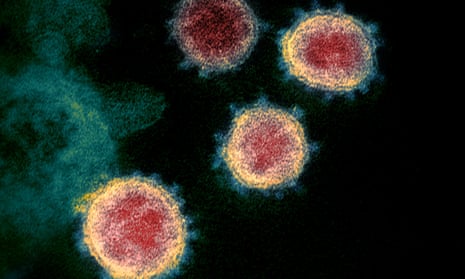An Australian epidemiologist and member of the World Health Organization’s emergency experts panel has called for the overhaul of a key process which she criticised for delaying by a week the declaration of Covid-19 as an international public health emergency.
Mary-Louise McLaws, a professor of epidemiology at the University of New South Wales who also sits on the WHO’s health emergencies program experts advisory panel for Covid-19, said it was a disagreement between WHO member nations, and not the response of the WHO’s head, Tedros Adhanom Ghebreyesus, that ultimately slowed down the international escalation of the response to the virus.
McLaws also said the newly announced investigation into the origins and response to Covid-19 should examine whether the WHO’s international health regulation committee should have acted quicker to call a meeting earlier than 22 January.
She explained that when the committee met on 22 January, members did not all agree to declare a public health emergency of international concern – a move that requires all 194 WHO member nations to begin preparations and initiate a response to the emergency. A PHEIC was ultimately declared by the committee on 30 January.
Speaking about the announcement of a review into Covid-19, McLaws told an Australian Science Media Centre webinar on Wednesday that the politicisation of Covid-19 was “unprecedented”.
“The only unprecedented issue in my mind that stands out is the politicising of the source country,” she said. “We’ve had swine flu, we’ve had HIV, we’ve had Ebola, we’ve had mad cow disease, you name it, and we’ve never politicised the source before.
“Now I need to remind people that that speed [to declare a PHEIC] is not the speed at which the director general Dr Tedros dictates at all. It’s the international health regulation committee ... on that they had a committee that had the US, Australia, Senegal, and Russia and many other countries. They met on the 22nd of January. Now, could they have met earlier? That’s something that WHO might want to look at, [its] processes.
“What happened during those meetings, the 22nd and 23rd, those members, the countries, not the WHO, the countries that are on that WHO committee, couldn’t come to a decision about whether it would be a public health emergency of international concern.”
McLaws suggested that the WHO reform the requirement for a PHEIC to be declared in a binary sense, and called for gradual levels of the emergency to be called, so that member nations were not as restricted in the domestic health responses they needed to activate if the health issue in question turned out to be less serious than first thought.
“That’s one thing that WHO will probably look to change. Can they have a scale, so that when the committee can’t decide, WHO could at least ... officially say, ‘Look, I think it’s not a zero, not a one, but it’s somewhere in between.’”
Meeting minutes from the international health regulation committee note this “binary” nature of declaring the PHEIC as a reason why members did not agree to it during the 22 January meeting.
“If there is a criticism or a change the member states need to take some control as well, because it’s not WHO and WHO staffers that make these calls or do these,” McLaws said. “WHO is run by its member states. So, the member states need to consider how best they can speed things up if the group takes it too slow.”
During the webinar, McLaws also criticised epidemiologists who were considering economic impacts, including the connectedness of state economies, in their responses to the pandemic.
“I am just an epidemiologist, I’m not an economist. And so I don’t even bring that [economic impact] into my thinking because my position is to tell it as it is epidemiologically, and let others decide how they feel about doing, like a social experiment to allow it to let it run its course like Sweden, which is abhorrent.”
McLaws also cast doubt on the reliability of modelling that predicts case numbers and deaths, arguing the Covid-19 death rates have not allowed sufficient time for recoveries and further deaths to occur before being calculated.
